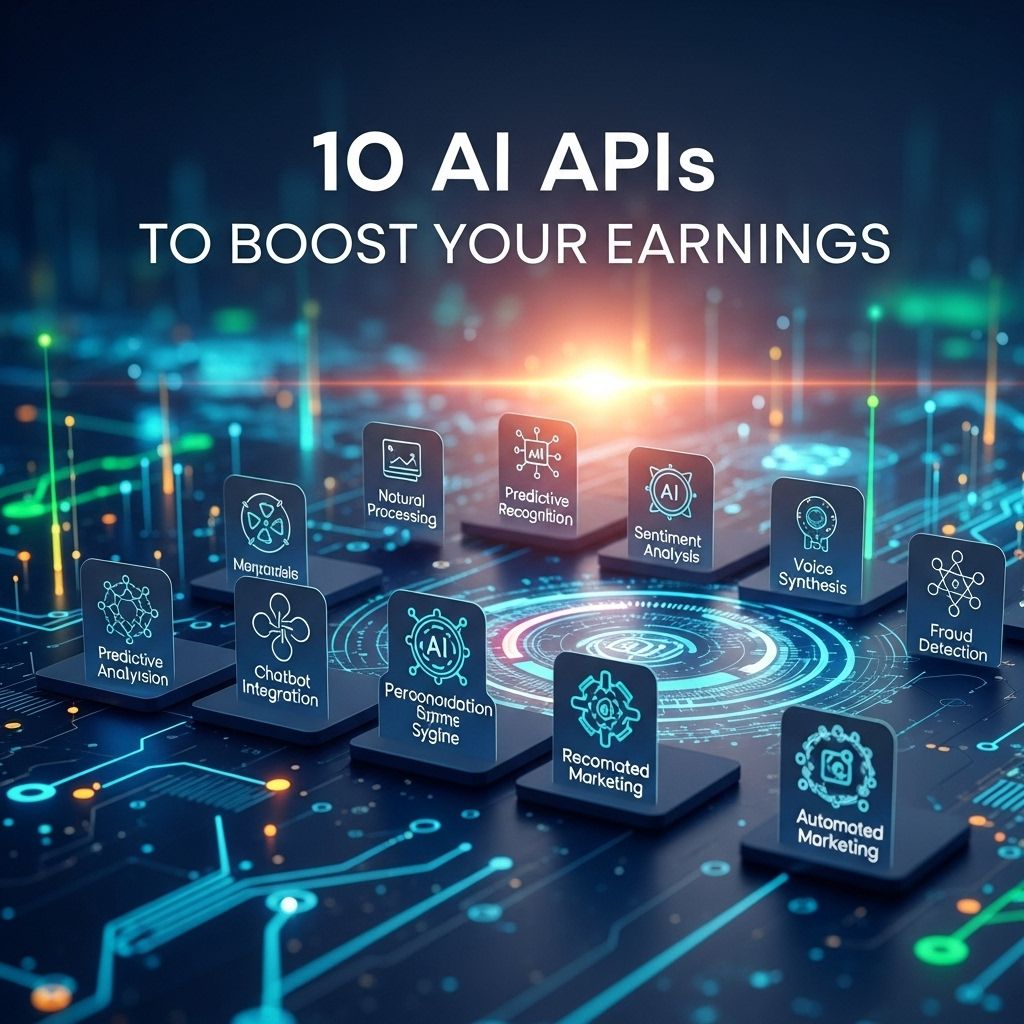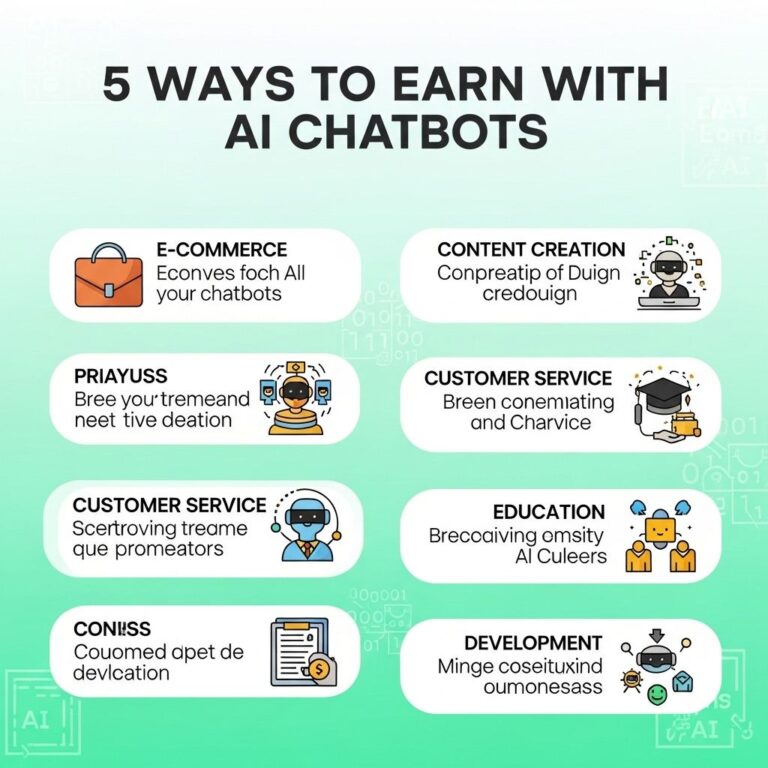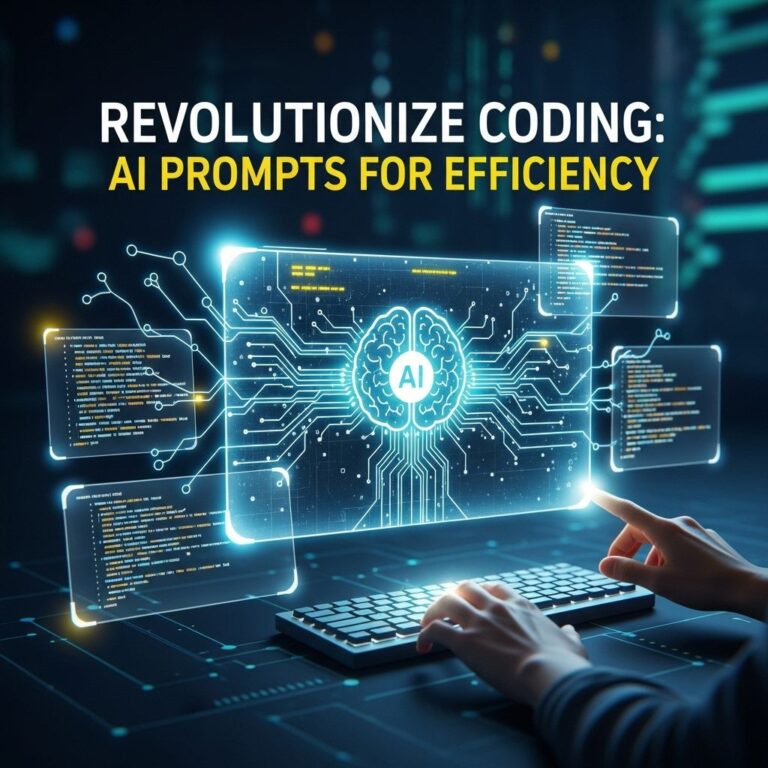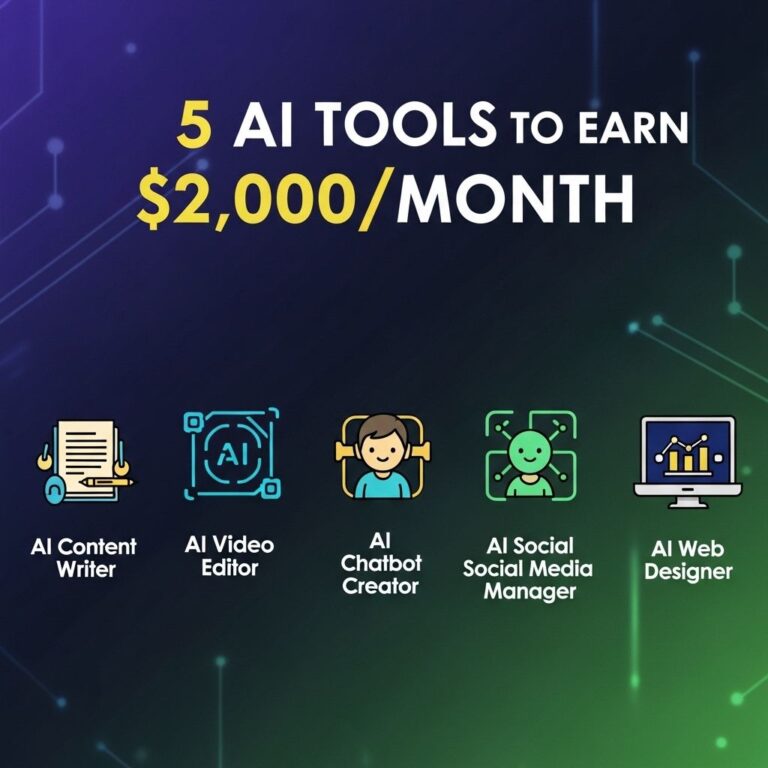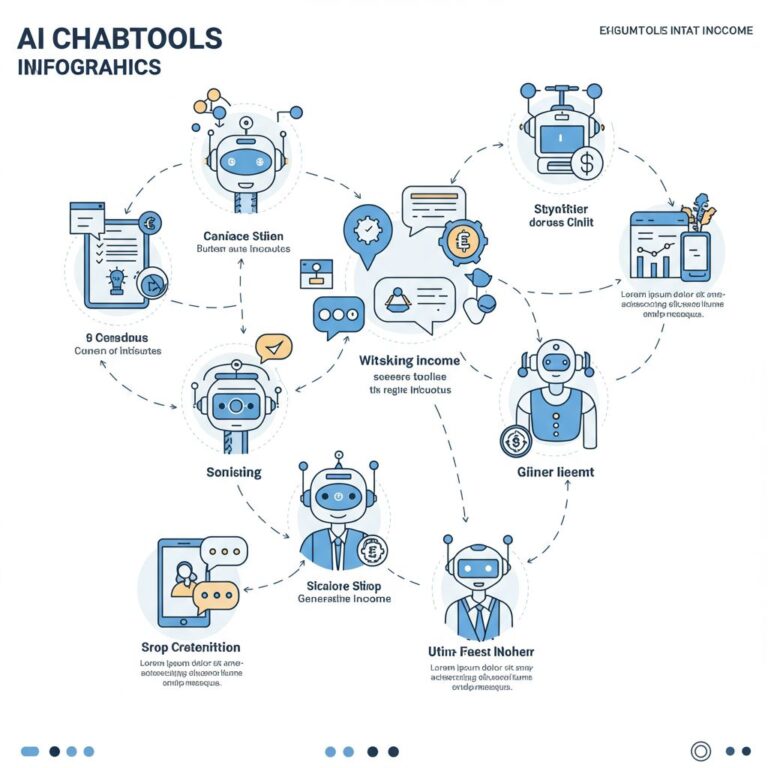In today’s digital landscape, leveraging artificial intelligence (AI) can unlock new revenue streams and enhance productivity for businesses across various industries. Whether you’re an entrepreneur, a developer, or a marketer, integrating AI APIs into your applications can streamline operations, optimize user experiences, and foster data-driven decision-making. This article explores ten powerful AI APIs that can significantly boost your earnings and efficiency.
Table of Contents
Understanding AI APIs
Before diving into specific APIs, it’s essential to understand what an AI API is and how it can be beneficial. AI APIs provide developers with access to machine learning models and services that can process data, recognize patterns, and automate tasks. By utilizing these APIs, businesses can:
- Enhance their product offerings with intelligent features
- Improve customer engagement and satisfaction
- Automate repetitive tasks and free up resources
- Gain insights from large datasets
Top 10 AI APIs to Consider
The following is a curated list of AI APIs that can help elevate your business and increase your earnings:
1. OpenAI GPT-3
OpenAI’s GPT-3 is one of the most advanced language models available, capable of generating human-like text. It can be used for:
- Content generation
- Chatbots and virtual assistants
- Language translation
2. Google Cloud Vision API
This API enables developers to integrate image analysis capabilities into their applications. With the Cloud Vision API, you can:
- Recognize objects and landmarks in images
- Text detection in images
- Facial recognition
3. IBM Watson Assistant
IBM Watson Assistant is designed to create conversational interfaces for your applications. Key features include:
- Natural language processing
- Contextual understanding
- Integration with various messaging channels
4. Microsoft Azure Cognitive Services
Azure Cognitive Services provides a variety of APIs for different AI capabilities, including:
| API | Functionality |
|---|---|
| Text Analytics | Extracts insights from text |
| Computer Vision | Analyzes images and videos |
| Speech Service | Speech recognition and synthesis |
5. Amazon Rekognition
Amazon Rekognition is an image and video analysis service that uses deep learning to identify objects, people, text, scenes, and activities. Its applications include:
- Facial analysis
- Content moderation for images and videos
- Real-time facial recognition
6. Twilio API for SMS and Voice
Twilio’s suite of APIs allows businesses to communicate with customers via SMS and voice. Benefits include:
- Customer engagement through automated notifications
- Two-factor authentication via SMS
- Voice interaction capabilities
7. Hugging Face Transformers
This API offers access to a library of pre-trained models for natural language processing tasks, making it an excellent choice for:
- Text classification
- Named entity recognition
- Text summarization
8. AssemblyAI
AssemblyAI provides a powerful speech recognition API for converting spoken language into text. Use cases include:
- Transcribing meetings or calls
- Generating captions for videos
- Voice command applications
9. Clarifai
Clarifai offers a robust image and video recognition API that can classify content with high precision. Key functionalities include:
- Custom model training
- Image tagging
- Moderation of explicit content
10. Algolia
Algolia is a search and discovery API that enhances the user experience through fast and relevant search results. Key features are:
- Autocomplete suggestions
- Faceted search capabilities
- Personalized search results based on user behavior
How to Choose the Right AI API
When selecting an AI API for your business, consider the following factors:
- Use Case: Identify the specific problem you want to solve.
- Scalability: Ensure the API can handle your business growth.
- Documentation: Good documentation can significantly reduce integration time.
- Pricing: Analyze the cost structure to ensure it fits your budget.
- Support: Choose an API provider with reliable support options.
Integrating AI APIs into Your Business
Once you’ve chosen an AI API, the next steps involve integration and implementation:
1. Set Clear Objectives
Define what you aim to achieve with the AI API and how it aligns with your business goals.
2. Training and Testing
Before full deployment, train the AI model with relevant data and test its performance to ensure it meets your expectations.
3. Monitor and Optimize
After implementation, continuously monitor the API’s performance and optimize its usage based on feedback and results.
Conclusion
Incorporating AI APIs into your business model can lead to significant enhancements in efficiency, customer experience, and ultimately, revenue. By choosing the right API and integrating it effectively, you can harness the power of artificial intelligence to boost your earnings and stay competitive in an evolving marketplace. Start exploring these AI APIs today to find the best fit for your business needs.
FAQ
What are AI APIs?
AI APIs are application programming interfaces that allow developers to integrate artificial intelligence capabilities into their applications, enhancing functionality and performance.
How can AI APIs boost my earnings?
By integrating AI APIs into your applications, you can automate processes, enhance user experience, and offer advanced features, which can lead to increased customer satisfaction and higher revenue.
What are some popular AI APIs for developers?
Some popular AI APIs include Google Cloud AI, IBM Watson, Microsoft Azure Cognitive Services, OpenAI API, and Amazon AI services, each offering unique features for various applications.
Are AI APIs suitable for small businesses?
Yes, AI APIs can be extremely beneficial for small businesses by providing access to advanced technologies without the need for extensive resources or expertise, helping them compete in the market.
What industries can benefit from using AI APIs?
AI APIs can benefit various industries, including healthcare, finance, retail, and marketing, by providing tools for data analysis, customer insights, and process automation.
How do I choose the right AI API for my needs?
To choose the right AI API, consider factors such as the specific functionalities you need, ease of integration, pricing, and the level of support offered by the API provider.

